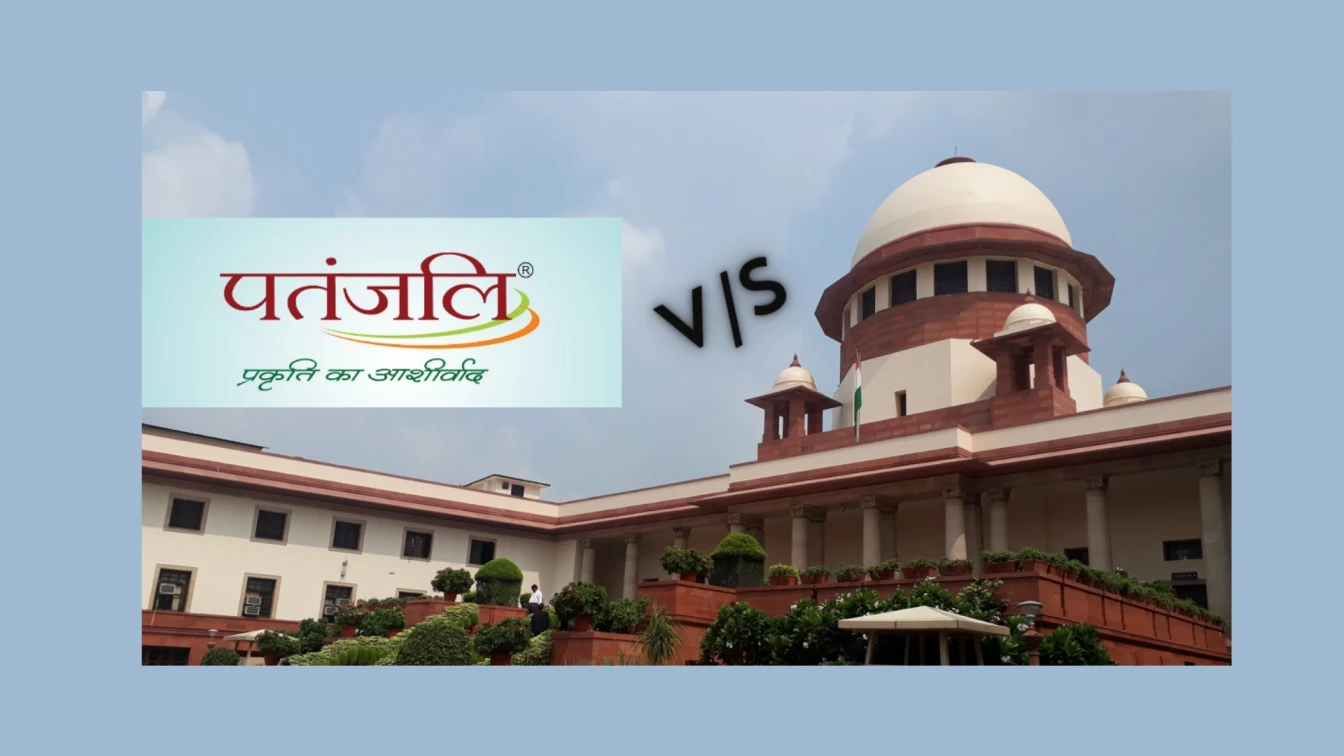The Supreme Court of India has issued a contempt notice to Patanjali and its Managing Director Acharya Balkrishana for persisting in disseminating false and deceptive claims regarding the efficacy of their products in curing diseases. This Notice comes in the wake of the Patanjali Challenge of earlier court orders prohibiting misleading advertisements.
SC prohibited Patanjali from branding or advertising goods to treat the diseases
The court consisting of two judges namely Justice Hima Kohli and Ahsanuddin Amanullah, they have has delivered an order that is counter to the company, temporarily prohibiting it from branding or advertising goods purported to treat the diseases spelt out in the Drugs and Magic Remedies (Objectionable Advertisements) Act 1954. An alternative option is allowing the company 3 weeks to reply on the issues of notice and justify why their penalty should be retaliated.
The Supreme Court also criticized the Central government, accusing it of negligence by turning a blind eye to the issue. Justice Amanullah criticised the central government, stating that the entire nation had been “taken for a ride” while urging it to take decisive action under existing legislation.
The case stems from the petition filed by the Indian Medical Association (IMA) which alleged that Baba’s company had initiated a smear campaign against the COVID-19 vaccination drive and modern medicines. The Supreme Court has utterly instructed the company to refrain from making derogatory statements against any system of medicine.
ALSO READ | Top 10 FMCG Companies in India – NewsStreetAsia
Senior Advocate P S Patwalia, representing the Indian Medical Association (IMA), highlighted instances where Patanjali’s founder, Baba Ramdev, had disparaged allopathy, further exacerbating the controversy. The bench expressed dismay at the blatant disregard for its previous directives and indicated its intent to take stringent measures against the company.
IMA’s plea for intervention to curb campaigns disparaging allopathic medicine
Despite Patanjali’s contention that a complete ban on advertisements would adversely affect its commercial operations, the court remained resolute in its decision to restrict advertisements related to diseases specified under the Act. This move aligns with the IMA’s plea for intervention to curb campaigns disparaging allopathic medicine while promoting alternative systems.
The legal saga surrounding Patanjali’s advertisements dates back to August 2022 when the Supreme Court first issued notices to the concerned parties. Subsequent warnings and directives, including a threat of INR 1 Cr monetary penalty, underscore the gravity of the issue.
ALSO READ | Byju’s CEO faces removal – NewsStreetAsia
Responding to the development, Patanjali Foods clarified that the court’s findings would not affect its normal business operations or financial performance. Legal scholars like Vidhan Vyas emphasize the burden of proof on a company, stressing the importance of advertising material and official statements in shaping public opinion.











